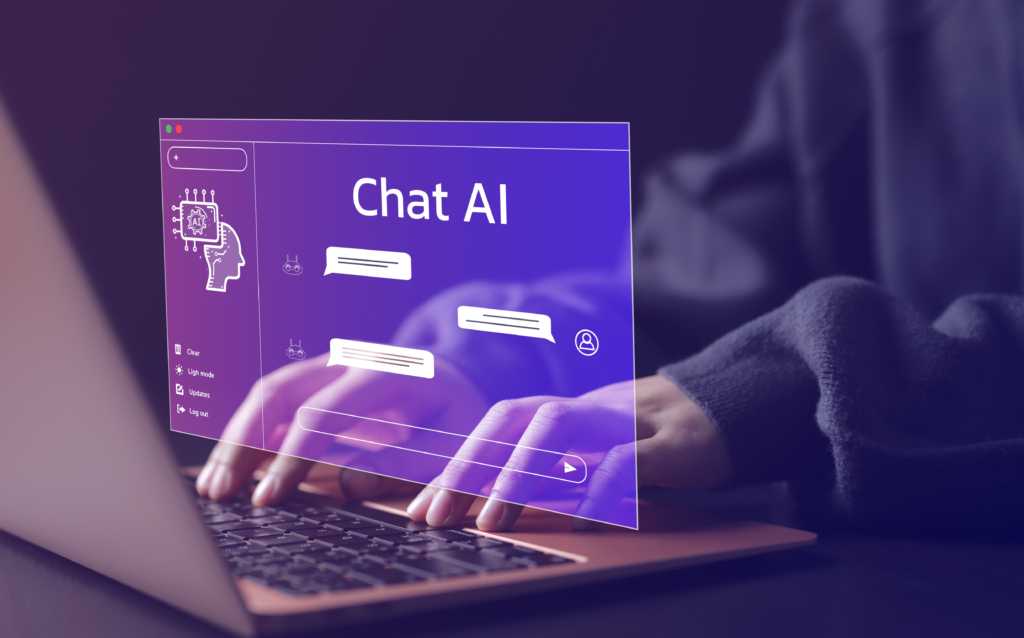In the rapidly evolving landscape of technology, generative AI has emerged as a powerful tool with significant implications for various industries, particularly marketing. But what exactly is generative AI, and how can it transform your marketing strategies? In this blog post, we’ll explore the fundamentals of generative AI and delve into its transformative impact on marketing.
Understanding Generative AI
Generative AI refers to a subset of artificial intelligence that focuses on creating new content, whether it’s text, images, music, or even code. Unlike traditional AI, which is designed to recognize patterns and make decisions based on existing data, generative AI can produce novel outputs that mimic human creativity. This is achieved through advanced algorithms and models, such as Generative Adversarial Networks (GANs) and Variational Autoencoders (VAEs).
Key Components of Generative AI:
- Generative Adversarial Networks (GANs): GANs consist of two neural networks – the generator and the discriminator – that work together in a competitive process. The generator creates new data samples, while the discriminator evaluates their authenticity. This back-and-forth leads to the creation of highly realistic content.
- Variational Autoencoders (VAEs): VAEs are another type of generative model that learns to encode data into a latent space and then decode it back into new, unique samples. This process allows for the generation of diverse content that retains the essential characteristics of the original data.
The Impact of Generative AI on Marketing
Generative AI has the potential to revolutionize marketing by enabling brands to create personalized, engaging, and dynamic content at scale. Here are several ways it can impact your marketing efforts:
1. Content Creation

Generative AI can significantly streamline the content creation process. It can produce high-quality articles, blog posts, social media updates, and even video scripts. Marketers can leverage AI-generated content to maintain a consistent online presence without the need for extensive human intervention.
Example: AI tools like OpenAI’s GPT-4 can generate blog posts, product descriptions, and social media content that resonate with your target audience, ensuring you always have fresh and relevant material to share.
2. Personalization
Personalization is key to modern marketing, and generative AI excels in this area. By analyzing customer data, AI can create personalized content and recommendations tailored to individual preferences. This enhances customer engagement and increases the likelihood of conversions.
Example: E-commerce platforms can use generative AI to recommend products based on a customer’s browsing history and previous purchases, creating a more personalized shopping experience.
3. Creative Design
Generative AI is not limited to text; it can also produce visually appealing designs. From creating unique logos to designing marketing materials, AI can assist in the creative process, saving time and resources.
Example: Tools like DALL-E, an AI model developed by OpenAI, can generate images from textual descriptions, allowing marketers to quickly create visuals for campaigns without the need for graphic design expertise.
4. Customer Insights

AI-driven analytics can provide deeper insights into customer behavior and preferences. By generating and analyzing large datasets, AI can identify trends and patterns that might be missed by human analysts. These insights can inform marketing strategies and help optimize campaigns.
Example: Predictive analytics powered by generative AI can forecast customer behavior, allowing marketers to proactively address potential issues and capitalize on emerging opportunities.
5. Chatbots and Virtual Assistants
Generative AI can enhance customer service through intelligent chatbots and virtual assistants. These AI-driven tools can engage with customers in real-time, answering queries, providing recommendations, and even completing transactions.
Example: A generative AI-powered chatbot can handle customer inquiries on a website, providing instant responses and freeing up human agents to focus on more complex tasks.
Challenges and Considerations
While generative AI offers numerous benefits, it’s essential to be aware of the challenges and ethical considerations associated with its use. As with any powerful technology, the application of generative AI in marketing necessitates a thoughtful and responsible approach. Below, we elaborate on some of the key challenges and considerations:
1. Quality Control

AI-generated content can be highly impressive, but it is not infallible. Ensuring that the content produced by generative AI meets the necessary standards of quality, relevance, and appropriateness is crucial. This involves several aspects:
- Accuracy: AI systems may generate content that contains factual inaccuracies or misleading information. Human oversight is essential to verify the correctness of the information and prevent the dissemination of false content.
- Relevance: AI models need to be trained on relevant and up-to-date data to produce content that is pertinent to the current context. Even then, the generated content might not always align perfectly with the brand’s voice or the specific needs of the campaign.
- Appropriateness: The language and tone used by AI might not always be suitable for the target audience. There is a risk of generating content that could be deemed offensive or inappropriate, which could harm a brand’s reputation.
Solution: Implementing a robust review process where human editors evaluate and refine AI-generated content before publication can mitigate these risks. Regularly updating and fine-tuning the AI models based on feedback can also improve the quality and reliability of the output.
2. Ethical Concerns
Generative AI has the potential to be misused in ways that raise significant ethical issues. Two major concerns are the creation of fake news and deepfakes:
- Fake News: AI can be used to generate realistic but false news articles, spreading misinformation quickly and convincingly. This can have severe societal impacts, influencing public opinion and undermining trust in legitimate news sources.
- Deepfakes: AI can create highly realistic images and videos of people saying or doing things they never actually said or did. These can be used maliciously to manipulate opinions, defame individuals, or create false narratives.
Solution: Companies must establish ethical guidelines and protocols for the use of generative AI. This includes strict content validation processes to detect and prevent the creation and distribution of fake news and deepfakes. Collaborating with industry bodies and regulatory authorities to develop standards and practices for ethical AI use is also important.
3. Data Privacy
The use of customer data to train and deploy AI systems for personalization must be handled with utmost care to comply with privacy regulations and respect user consent. Here are some considerations:
- Regulatory Compliance: Different regions have varying regulations regarding data privacy, such as the GDPR in Europe and CCPA in California. Ensuring compliance with these laws is mandatory to avoid legal repercussions.
- User Consent: It’s essential to obtain explicit consent from users before collecting and using their data for AI-driven personalization. Transparency about how their data will be used is crucial to maintain trust.
- Data Security: Protecting the data from breaches and unauthorized access is paramount. AI systems often require large datasets, which can be targets for cyberattacks.
Solution: Implementing robust data protection measures, such as encryption and secure data storage, is critical. Organizations should also ensure that their data collection and processing practices are transparent and that users are well-informed about how their data is being used. Regular audits and compliance checks can help in maintaining adherence to privacy laws and regulations.
Conclusion
Generative AI holds immense potential for revolutionizing marketing, but its adoption comes with significant challenges and ethical considerations. Ensuring high-quality content, addressing ethical concerns, and maintaining data privacy are crucial for leveraging the benefits of generative AI responsibly. By implementing strong oversight mechanisms and adhering to ethical guidelines, marketers can harness the power of generative AI to create more engaging, personalized, and effective marketing strategies while maintaining trust and integrity.
FAQs About Generative AI and Its Impact on Marketing
1. What is generative AI?
Generative AI refers to a subset of artificial intelligence that focuses on creating new content, such as text, images, music, or code. It uses advanced algorithms and models, like Generative Adversarial Networks (GANs) and Variational Autoencoders (VAEs), to produce novel outputs that mimic human creativity.
2. How can generative AI be used in marketing?
Generative AI can be used in various marketing activities, including:
- Content creation for blogs, social media, and advertisements.
- Personalizing marketing messages and product recommendations.
- Designing creative assets such as logos and visuals.
- Analyzing customer data for insights and trends.
- Enhancing customer service through AI-driven chatbots and virtual assistants.
3. What are the benefits of using generative AI in marketing?
The benefits of using generative AI in marketing include:
- Increased efficiency and speed in content creation.
- Enhanced personalization of marketing messages.
- Cost savings by reducing the need for manual content creation and design.
- Improved customer engagement and satisfaction.
- Deeper insights into customer behavior and preferences.
4. What are the challenges of using generative AI in marketing?
Challenges include:
- Ensuring the accuracy, relevance, and appropriateness of AI-generated content.
- Addressing ethical concerns, such as the potential misuse of AI for creating fake news and deepfakes.
- Maintaining data privacy and compliance with regulations.
- The need for human oversight to review and refine AI outputs.
5. How can marketers ensure the quality of AI-generated content?
Marketers can ensure quality by:
- Implementing a robust review process with human editors.
- Regularly updating and fine-tuning AI models based on feedback.
- Using AI tools as supplements rather than replacements for human creativity and judgment.
6. What ethical concerns are associated with generative AI in marketing?
Ethical concerns include:
- The potential creation and spread of fake news and deepfakes.
- Misuse of AI-generated content for deceptive or harmful purposes.
- Ensuring transparency and accountability in AI-driven marketing practices.
7. How can marketers address data privacy issues when using generative AI?
Marketers can address data privacy issues by:
- Ensuring compliance with data protection regulations, such as GDPR and CCPA.
- Obtaining explicit user consent for data collection and use.
- Implementing robust data security measures to protect against breaches.
- Being transparent about data usage practices with customers.
8. What is the future of generative AI in marketing?
The future of generative AI in marketing looks promising, with continued advancements expected to enhance its capabilities. Marketers can look forward to more sophisticated personalization, improved customer interactions, and greater efficiency in campaign execution. However, ongoing attention to ethical considerations and data privacy will remain crucial.
9. Are there any tools available for marketers to use generative AI?
Yes, several tools are available for marketers to leverage generative AI, including:
- OpenAI’s GPT-4 for text generation.
- DALL-E for image creation.
- ChatGPT for conversational AI and customer support.
- Various AI-driven analytics and personalization platforms.
10. How can businesses start implementing generative AI in their marketing strategies?
Businesses can start by:
- Identifying specific marketing areas where generative AI can add value.
- Investing in AI tools and platforms that align with their needs.
- Training staff on the effective use and management of AI technologies.
- Establishing guidelines and processes for ethical AI use and data privacy.
- Continuously monitoring and refining AI-driven initiatives based on performance and feedback.






